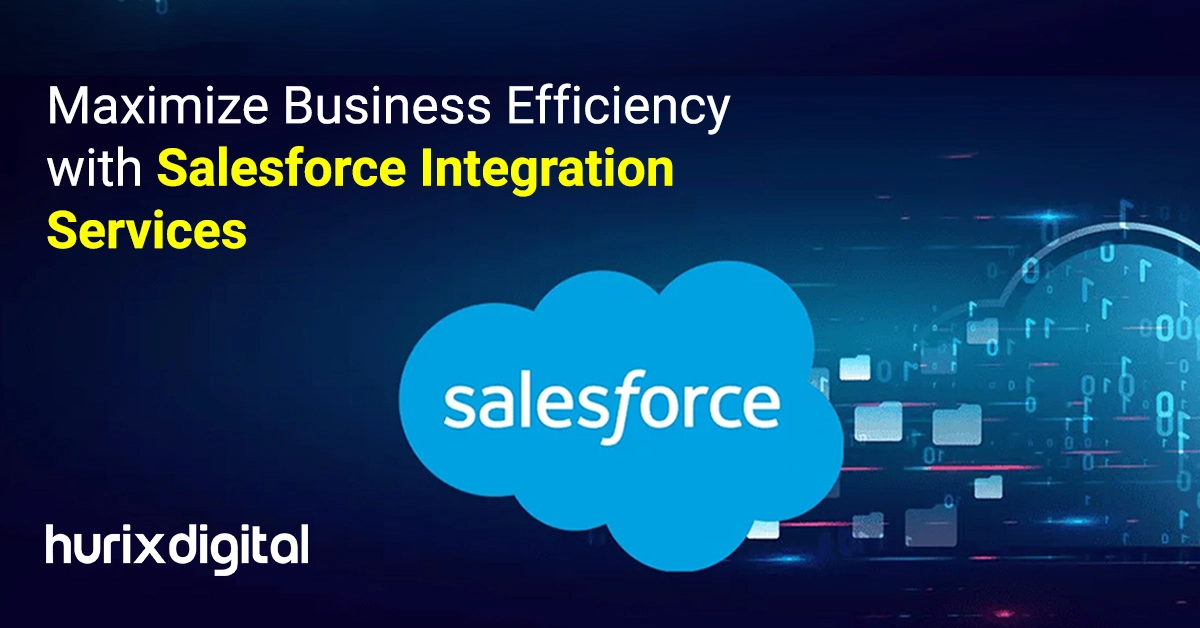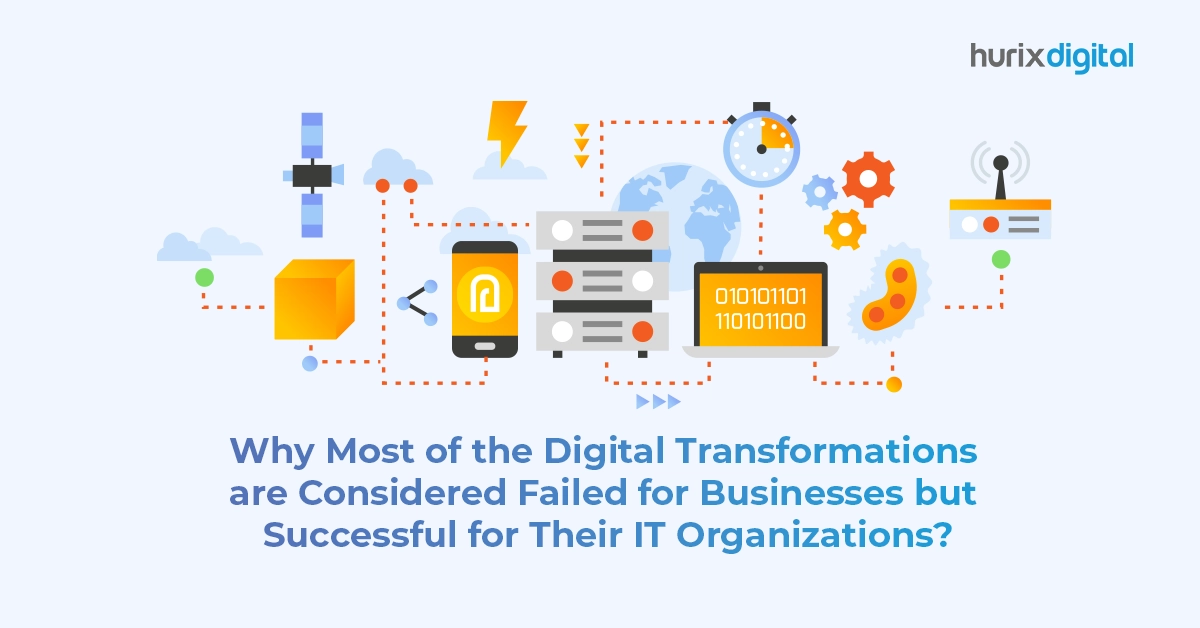
Maximize Business Efficiency with Salesforce Integration Services
Summary
Salesforce integration with cloud and AI breaks data silos, optimizes processes, and enhances customer experiences, boosting sales productivity and data quality.
Seamless Salesforce Integration in a modern business environment is a key enabler for companies that are looking to eliminate data silos and disconnected systems.
Organizations benefit greatly when they can utilize their data optimally. An integrated view with a layer of central orchestration enables organizations to make smarter decisions, operate smoothly, and deliver personalized customer experiences.
Studies show that companies adopting this integration have seen significant improvements, including a 44% boost in data completeness, a 37% increase in sales productivity, and a 29% rise in sales opportunities. These metrics underscore the substantial impact that effective integration can have on a company’s performance.
Ultimately, when Salesforce is seamlessly integrated with other business systems, it transcends its role as merely a CRM. It becomes a powerful engine for growth and innovation, driving operational excellence and strategic advancements.
Table of Contents:
- How Can Salesforce Integration Services Propel Your Business to New Heights?
- The Future of Salesforce Integration
- Top 3 Ways to Enhance the Value of Salesforce Integration
- Wrapping Up
How Can Salesforce Integration Services Propel Your Business to New Heights?
Here’s how seamless Salesforce integration can elevate how your organization functions:
1. Process Optimization
Business process optimization is at the top of all CIOs and CTOs’ to-do lists. Seamless Salesforce integration ensures that business processes are productive and headed in the right strategic direction.
Here’s how:
- Streamlined Workflows: Using Salesforce alongside other systems helps save time on repetitive tasks such as lead generation and order processing. For instance, integration between Salesforce and marketing automation tools can accelerate the flow from marketing to sales.
- Improved Efficiency: Business process automation eliminates manual intervention, thereby lessening the chances of errors. Automated data synchronization across systems allows your team to concentrate on value-critical tasks instead of inputting data manually.
- Enhanced Collaboration: Integrated systems ensure that information can be passed freely among various departments within the firm. A single data view gives all stakeholders the most up-to-date data to work with. This eliminates duplication and errors, leading to efficient teamwork.
2. Data Management
Businesses recognize the importance of effective data management to stay competitive and agile.
Here’s how Salesforce API integrations can transform the way businesses handle their data:
- Breaking Down Data Silos: Integration solves the issue of isolated data pockets by linking Salesforce with ERP, marketing, and customer support systems. It establishes a unified data source available for all departments. This helps departments make accurate and timely decisions on matters affecting the organization.
- Automated Data Synchronization: Integration automates data updates across different platforms, ensuring data consistency and accuracy. This makes the process less error-prone and saves time for more important tasks.
- Data Quality Improvement: Integration enables data cleansing and enrichment to augment data completeness and validity. This can be beneficial in data analysis, resulting in better decisions and improved ROI from Salesforce investments.
Also Read: Boost Business Profitability with Data Analytics as a Service
3. Business Scalability
Salesforce Integration Services are fundamental for companies seeking to grow and innovate. Here’s how they can help businesses scale faster and sustainably:
- Expanding Capabilities: As your firm grows, the need for sophisticated features increases. Integrating new applications with Salesforce enhances its capabilities, enabling it to fulfill changing customer requirements.
- Supporting Business Growth: As data volumes grow and user activity increases, top cloud-based integrations help Salesforce handle the load without performance problems. This means that the business can scale seamlessly.
- Enabling Innovation: Integration services allow businesses to try out new technologies, such as artificial intelligence (AI) or the Internet of Things (IoT). This drives growth while also ensuring that companies remain ahead of the competition.
4. Customer Experience
In a highly competitive environment, offering an excellent customer experience is key.
Here are some ways that seamless Salesforce integration can assist businesses in providing personalized journeys and improving service standards:
- 360-degree Customer View: Integration brings together information from different sources into one place, thus giving a complete picture of the target buyer’s preferences and behaviors. This allows firms to anticipate needs and customize engagements accordingly.
- Personalized Customer Journeys: With digital marketing and service platforms connected to Salesforce, companies can deliver tailored solutions ranging from advertising and sales promotions to customer care services.
- Improved Customer Service: Integrated systems enable faster, more effective customer support with real-time access to relevant information. This leads to faster resolution times, increased satisfaction rates, and higher customer loyalty levels.
The Future of Salesforce Integration
As technology advances, Salesforce integration services will continue to evolve, with cloud-based solutions taking the lead. The future of integration is bright, given the emerging technologies that will change how we work:
1. Cloud-Based Solutions
These platforms provide the scalability and flexibility to connect systems across a variety of environments. This eases management and speeds up the transition towards greater digitalization.
2. AI-Powered Automation
AI facilitates integration by automating data processing and other intricate operations. This leads to the creation of predictive models that let businesses make anticipatory decisions to provide optimal customer experience.
3. Advanced Analytics Capabilities
Integrating Salesforce with analytics platforms provides more meaningful metrics on business outcomes and customer trends. This informs strategic processes and constant enhancements throughout the organization.
Top 3 Ways to Enhance the Value of Salesforce Integration
With the emergence of new integration technologies, the significance of Salesforce integration will increase further.
To maximize Salesforce integration benefits, businesses should focus on the following:
1. Accelerated Time-to-Value
Integration using cloud technology is relatively fast and can be scaled to suit a company’s needs. This allows companies to start reaping the advantages of unified data usage immediately.
2. Enhanced Intelligence
With the integration of AI, businesses stand to benefit from advanced predictive analytics and customized recommendation services. This improves the decision-making capabilities and overall business intelligence of the organization.
3. Improved Business Agility
Advanced analytics from integrated systems enable businesses to swiftly adapt to changing market conditions. This increased agility allows organizations to stay ahead of the competition and maintain market leadership through continuous innovation and responsiveness to new opportunities.
Also Read: Revolutionizing Efficiency: The Impact of AI-Powered Workflow Automation on Business Processes
Wrapping Up
Seamless Salesforce integration is the future of business, as it fosters agility and intelligence. Cloud-based solutions and AI can help businesses enhance the Salesforce platform’s capabilities, helping them stay ahead of the game in a data-intensive environment.
At Hurix Digital, we provide the best Salesforce consulting services that help you achieve higher levels of productivity. Our solutions address your business needs effectively while maintaining compatibility between essential systems. Partner with us to improve your business agility and the overall value of your Salesforce solution.
Contact us today to learn more about how we can help you drive growth and success!

Currently serving as the Vice President of Technology Delivery Operations at HurixDigital, a prominent global provider of digital content and technology solutions for publishers, corporations, and educational institutions. With over 16 years of experience spanning EdTech and various domains, I hold certification as a SCRUM Product Owner (CSPO). My expertise includes operations, finance, and adept people management skills.







